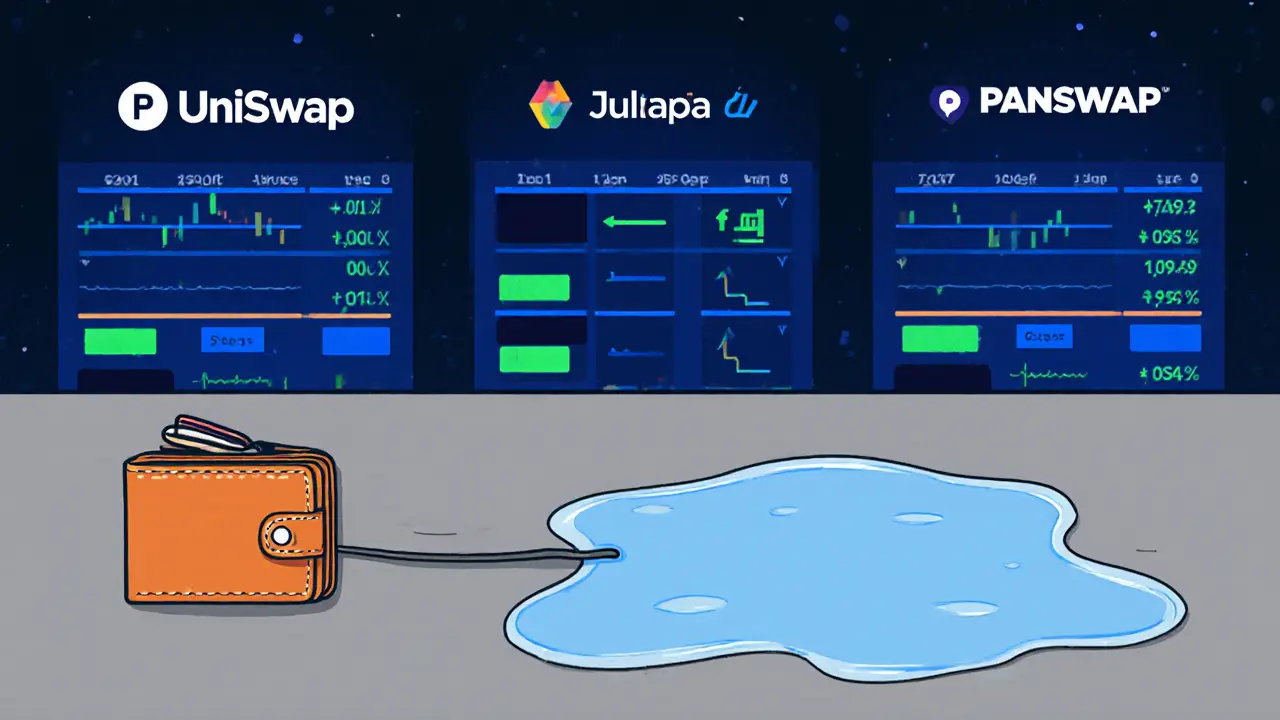Decentralized Exchange (DEX) Explained: How They Work and Which Ones Actually Matter
When you trade crypto on a decentralized exchange, a peer-to-peer platform that lets users trade directly without a central authority. Also known as DEX, it removes banks, brokers, and intermediaries from the process—giving you full control over your funds. Unlike traditional exchanges where you hand over your coins to a company, a DEX runs on smart contracts. That means your wallet stays connected, your keys stay yours, and trades happen automatically when conditions are met.
Most DEXs run on blockchains like Ethereum, BNB Chain, or Base. They rely on liquidity pools, reserves of crypto tokens locked in smart contracts to enable instant trades instead of order books. If you want to swap ETH for USDC, you’re not buying from another person—you’re trading against a pool of both tokens. The price changes based on supply and demand inside that pool. This is how platforms like PancakeSwap, a popular DEX on BNB Chain that offers low fees and concentrated liquidity and Uniswap, the original DEX on Ethereum that started the liquidity pool model work. You don’t need to sign up, verify your ID, or wait for approval. Just connect your wallet and go.
But not all DEXs are created equal. Some have deep liquidity and real volume, like PancakeSwap V3 on Base. Others, like Zeddex or obscure BSC DEXs, have almost no users, zero audits, and prices that can swing 50% in minutes. A DEX with low liquidity is risky—your trade might not go through, or you could get a terrible price because there aren’t enough tokens in the pool. And while DEXs are permissionless, that also means anyone can launch one. Many are scams. Some look legit but vanish after a few weeks. Others hide behind fake claims like "zero fees" while charging hidden slippage or high gas fees.
That’s why knowing the difference matters. If you’re trading on a DEX, check the liquidity. Look at the trading volume. See if the project has been around for more than six months. Watch for audits from trusted firms like CertiK or PeckShield. And never send funds to a contract you don’t understand. The best DEXs don’t just let you trade—they make it safe, fast, and fair.
What you’ll find here are real reviews of DEXs and related tools—some that work, some that don’t. You’ll see how platforms like PancakeSwap V3 actually perform, why Zeddex is a trap, and how liquidity mining on DeFi protocols can earn you rewards without putting your capital at risk. We cover the ones with real users, real volume, and real transparency. Not the hype. Not the ghost projects. Just what’s working today.
JulSwap Crypto Exchange Review: Is This Decentralized Exchange Still Worth Using in 2025?
JulSwap is a fading decentralized exchange with shallow liquidity, high slippage, and near-zero trading volume. Its JULD token offers negligible rewards. Avoid it for serious trading-choose Uniswap or PancakeSwap instead.
Details +